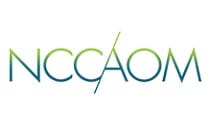By inserting very thin needles at specific points on the body and passing a mild electric current between them, electroacupuncture can relieve some side effects and symptoms common during cancer.
Affordability and access
Can you do this on your own?
- Electroacupuncture needs to be administered by a trained professional. We recommend that you check a provider’s licensing or certification before scheduling an appointment. The National Certification Commission for Acupuncture and Oriental Medicine is the certifying body in the USA.
Other names for electroacupuncture
- Electro-acupoint stimulation
Where to access
- Independent small practices

National Certification Commission for Acupuncture and Oriental Medicine
Affordability
- Moderate cost (between $500 US and $2000 US/year)
- Costs depend on the number of sessions
- Sessions can cost $50 to $100 or more each
- An initial session may be more expensive, as the provider will need to assess your medical condition
